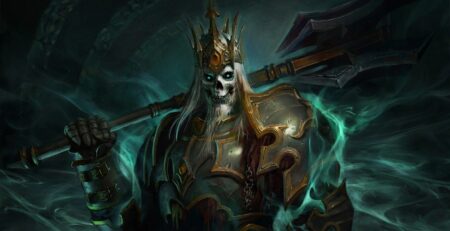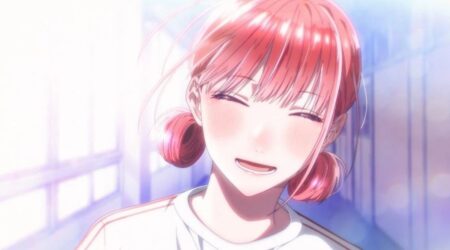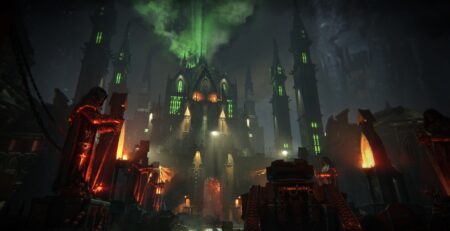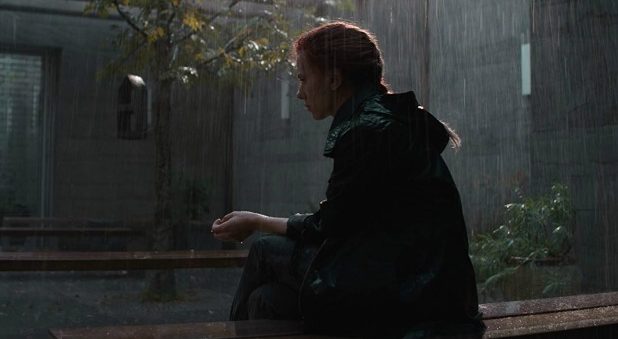
One of the best character moments between Steve Rogers and Tony Stark happens in Marvel’s The Avengers. In the scene in question, Steve, a soldier through and through, and a man who only sees self-sacrifice as a heroic move. In that moment, he tells Tony that he isn’t the man to “make the sacrifice play, to lay down on the wire and let the other guy crawl over [him].”
As a rebuttal and one that shows the everlasting dynamic between the two and their individual heroism, Tony responds, “I would just cut the wire.”
As fans of the Marvel Cinematic Universe know, Tony laid on the wire at the end of that film, and in Avengers: Endgame, he did it again. But when it comes to cutting the wire, Tony Stark wasn’t the only one who thought that way, so did Natasha Romanoff, the Black Widow. A trained Russian spy, with red in her ledger, her trajectory as a hero has been one that has her moving towards heroism out of guilt, out of self-service, and finally out of selflessness.
Before Avengers: Endgame, Natasha as Black Widow always cuts the wire. Similar to Tony, she will look for a way out, she will cut the wire before laying on it, it’s what she was taught complete the mission regardless of the consequences to others. This is both a positive and a negative, only because we have never seen her make the sacrifice play, or rather she hasn’t gotten the chance to be the hero. While others have gotten the chance to be a hero, her relegation to side character has had her supporting heroic actions and like Captain America: Civil War showed, covertly acting on her moral imperatives.
I’ve had a problem with how Black Widow has been written before Endgame. I have had so much love for and have since the hallway scene in Iron Man 2, but time and time again she was left to be a piece in the story and not the person propelling it. The ability to make the sacrificial play is a noble one, and the agency to be allowed to make it is given almost exclusively to male heroes in the MCU.
Scott Lang goes subatomic as Ant-Man, not expecting to come back but fully expecting to give his life for his daughter to stop the Yellowjacket. Captain America’s entire story revolves around his ability to lay on a grenade and ultimately the sacrificial play that lands him in the ice for 70 years, losing everyone and everything he had as Steve Rogers. Thor takes the full force of a star without knowing if he will survive but knowing that there is no other choice. Peter Quill, not yet aware that he is half-celestial, grasps the Power Stone to keep it from the hands of Ronan knowing that he may die. The list goes on and on, and while cutting the wire is ideal, there comes a moment for every hero when they have to make the sacrifice play.
In Avengers: Endgame, Black Widow is given that choice, the ability to lay on the wire for her team and those she loves, and she does it. Unlike Gamora’s death in Avengers: Infinity War, she has agency. She isn’t hurled off of the cliff by an abuser, instead, she chooses to give her life for something greater. She is written with the same agency men who make the sacrifice call have been written. She fights to do it. And for me, that was the completion of an arc that has taken too many movies to progress forward.
In fact, even though she debuted in the MCU in 2010’s Iron Man 2, her first piece of substantial character development is in Captain America: Winter Soldier in 2014, with little to none happening in Marvel’s The Avengers. By fighting for herself upon the collapse of S.H.I.E.L.D. in Winter Soldier, she shows that there is more to her identity to taking orders. It was here that she developed an arc, and she started moving past her identity as a spy and towards an identity of a hero.
This was continued in Captain America: Civil War, where her betrayal of her team, in favor of the Sokovia Accords, leads to the ultimate escape of Bucky. That being said, she didn’t sacrifice her standing with those in authority immediately, keeping her grounded in her identity that is closer to her identity as a spy. But in the choice to betray Tony, she is given agency, pushed by her morality and not authority, aligning her with what some would see as the anti-heroes of the movie, doing good by breaking the law and actively working against it.
Sadly, of her great character moments, Avengers: Age of Ultron still stands as one of the most unneeded romances in cinema, and as a woman who is childfree by choice, her statement of monstrosity due to inability to have kids was some of the worst writing in the MCU. That said, that installment in the MCU did show us the deep friendship between Clint and Natasha even more so than it did in The Avengers. She is a part of his family and set apart from it. She is an aunt to his kids and ultimately showcases one of the rare occasions when characters of opposite genders are presented in an intimate relationship that is not based on sex or romance, but instead a fraternal love, one that Avengers: Endgame capitalized on.
While some have issues with Natasha’s death, such as the directors, Joe and Anthony Russo not viewing her life as equal to Clint’s life, the absence of a funeral on par with Tony’s large turnout of almost every character in the MCU, and ultimately that it was too little too late to salvage a sidelined character, I don’t agree with them.
Black Widow has been a character with potential since her first appearance and for me, her appearance in Avengers: Endgame seized it. She is no longer just a spy, just a fighter, but she is a leader. Although we don’t see much of it, she has channeled her grief into her work, choosing to protect the world after all of her loss, becoming the leader of the Avengers when even Captain America walked away.
Overall, I see her status and sacrifice in Avengers: Endgame as the culmination of her arc, her dedication to the world and her team and the moment that every hero’s journey comes to. This is accentuated by the fact that from her first scene in the film she is allowed to feel. She is allowed to work through her tears, she is allowed to do more than just be strong and stoic. Her tears and her fear come from losing someone that was spared in the snap and having to once again watch her best friend lose himself.
Having already seen it when Loki controlled him, it’s clear that this time, when Clint Barton, Hawkeye, loses himself, she’s helpless to bring him back. This time, there isn’t a sceptre she can poke him with to save him, there isn’t a bad guy she can beat, and ultimately she is left alone, watching as her closest friend, her brother, deals out death yet again. She can’t save him, and she desperately wants to, even when others believe he is beyond saving.
While some see her death as saying that Clint’s life is more important than hers, it isn’t. For Natasha, as she explains prior to giving her life on Vormir by jumping from the cliff to obtain the soul stone, he gave her the compassion and the love she needed, he didn’t judge her for the worst that she’s done, and she could not wipe the red from ledger if she allowed him to not see past his lowest and worst moment.
So instead, she gives up her life. She makes a choice, a hero’s choice to lay on the wire and let her team walk across the field. Without her courage and acceptance of death, the world loses. Having spent five years after the snap aiming to keep it together, she couldn’t let that happen. While Natasha’s story is filled with terrible narrative choices, like Age of Ultron mentioned above, that have turned her character into an afterthought, this isn’t one of them. While the romance that has been the bane of her character has persisted, it doesn’t overshadow her agency and ability to exist without Bruce Banner, her story revolves around her own grief and choices, not someone else.
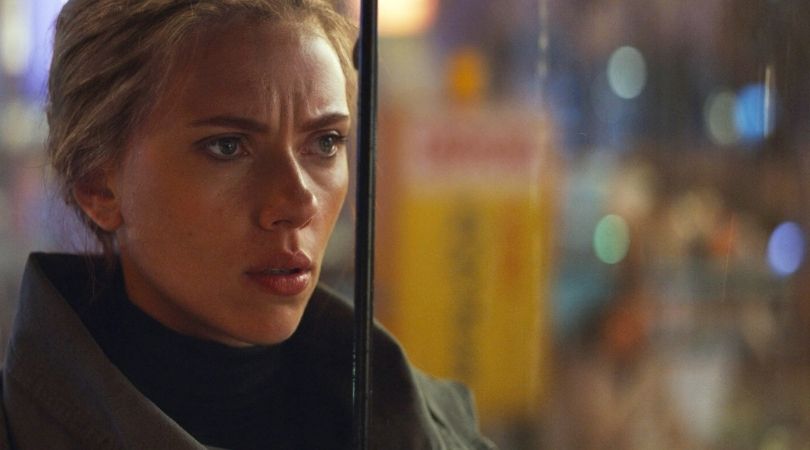
From a self-interested spy, to a valuable team member, to a woman who makes a choice to save the world, the same choice afforded all of the male heroes in the MCU pantheon, Natasha is important to the story. She isn’t killed to propel Clint’s story, in fact, her death may have very well stunted his growth, riddling him with more survivor’s guilt. Clint isn’t magically saved by her death. Like Tony’s choice to give his life for the world at the end of the film, her choice is just as heroic and just as important. It was important for her friendship. It was important for her growth. Ultimately, it was important to save the universe.
Now, this is point where I address her lack of funeral. She saved the universe, shouldn’t she be remembered the way Tony is? In short, no. After each Clint returns without Natasha, he drops to his knees, as does Bruce. The scene then switches to the men, Nebula is now switched with her 2014 self and not present mourning her. Specifically, the camera focuses on those who knew her the most, Rhodey, Tony, Steve, Clint, Thor, and Bruce all have moments of expressing their grief both silently or aloud. Most notably with Thor’s PTSD being triggered again as he rationalizes how they can bring her back, to which Clint responds with no, attempting to accept her death.
It is also explicitly stated that the Avengers, those on that dock, are her family, her only family. What some seem to forget is that she wasn’t a public figure like Tony, she didn’t call a press conference and announce her identity to the world. Instead, she lived in the shadows, saving the world with no recognition. While I understand the want from fans to see her commemorated and loved the way Tony was, that just isn’t true to the character. Beyond that, those closest to her, Clint and Bruce don’t forget her after the dock.
In addition, the quickness of the mourning was apparent but also understandable from a pacing perspective and an in-movie one: they still had to save the world. The entirety for the film is about each and every Avenger moving through their own pain, depression, grief, fear, and PTSD in order to win, to save those they lost, to bring them back. For Bruce, who mentions at the end of the film that he tried to use the stones to bring her back, that includes Natasha. By completing the mission, they honor her sacrifice. Now, I will concede, a scene with acknowledgment from the dusted Avengers remembering her would have been nice, but as a woman who lived her life closed off, the core six were enough for me.
Although I understand the perspective that women dying in films and leaving a majority male cast is troublesome, the film showed that it was ending their chapter to open a new one. One where A-Force can exist, and one that Natasha fought for.
When we look at the choice, in what world does Hawkeye beat Black Widow in a fight? None, not even on Vormir as past films have shown. On top of that, the death is done with care, focusing on her during and after the event, with echoes in the film’s end as well. Iron Man died a hero’s death in Endgame and so did Black Widow. After a lifetime of dealing death and attempting to come back from it, she did, and it was on her own terms.

